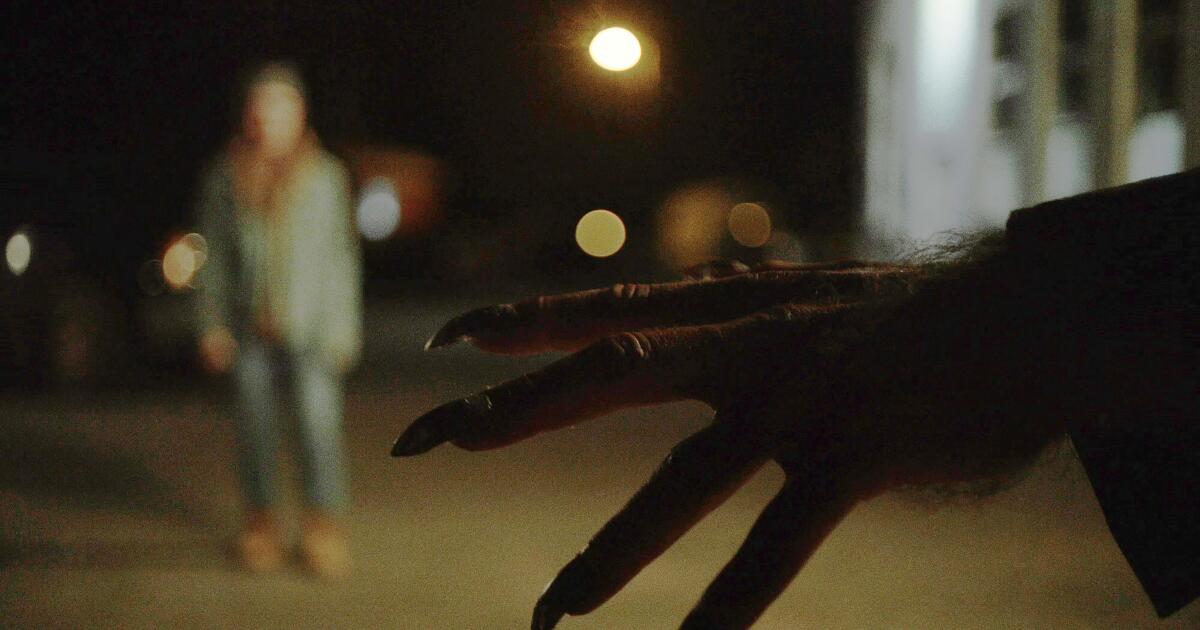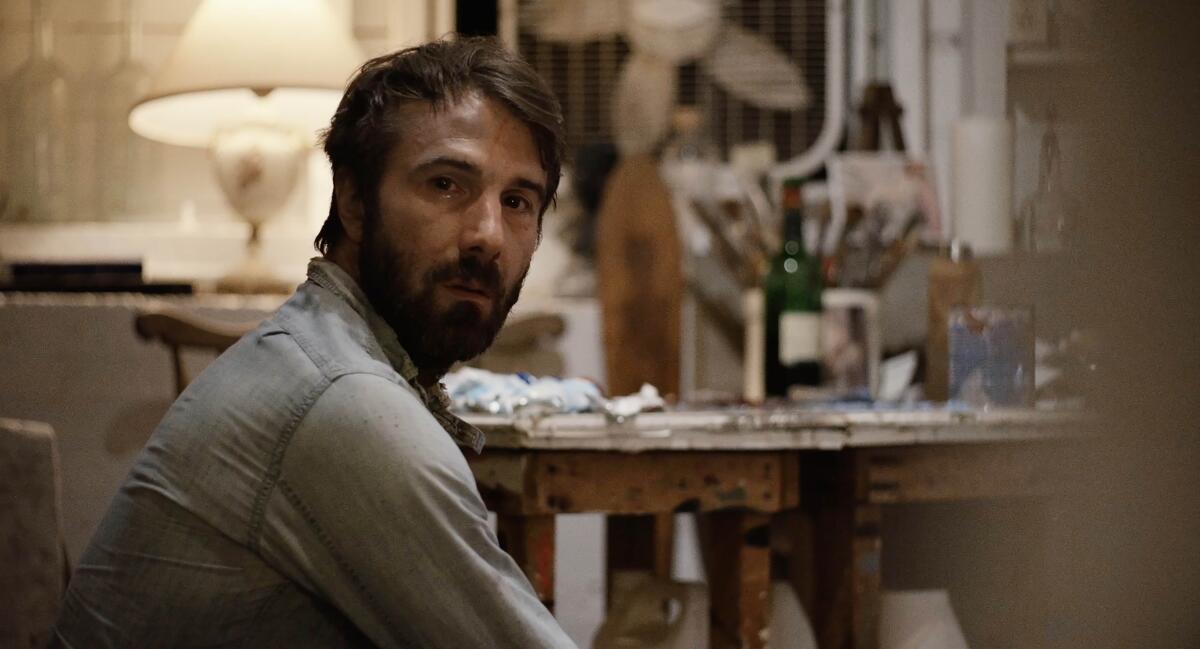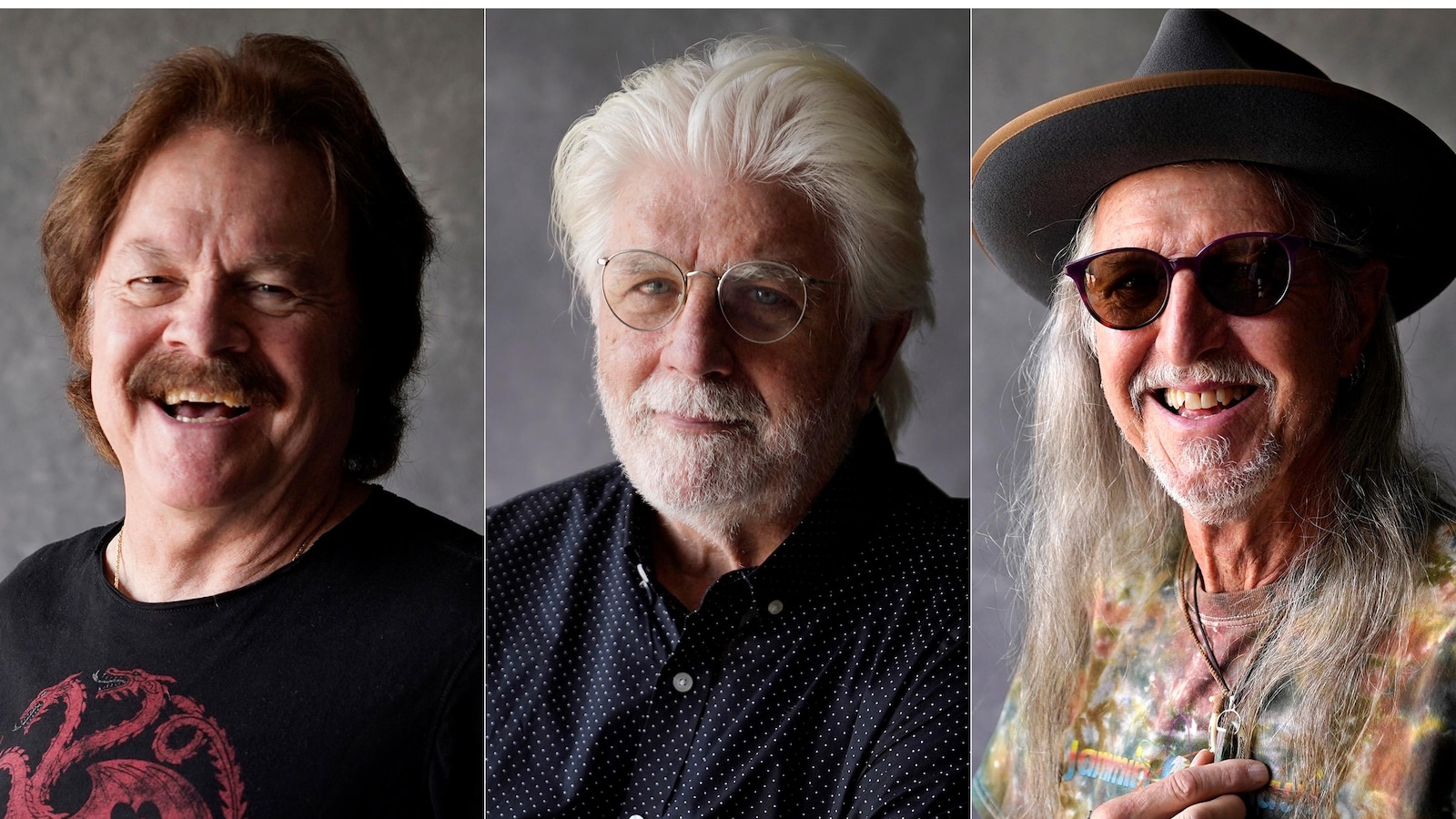
[ad_1]
Hard-drinking artist and itinerant contractor Charley (Alex Hurt) hasn’t been much of a morning person of late. Recalling the previous night’s events is a problem for him. But since Charley is the protagonist of a Larry Fessenden horror film, “Blackout,” he’s also been waking up half-naked in the woods and some of the splotches on his torn clothes are clearly blood.
Already a sensitive sort, bitterly consumed with the economic, environmental and societal direction of his small town, Charley is also processing the death of his father — this in addition to grappling with the fact that he may be a hairy creature with an after-hours body count. It’s the kind of dilemma that doesn’t exactly help one’s sense of helplessness.
Fessenden has long been a cult-horror mainstay as producer, director, writer and actor. He’s no stranger to the alchemy of woolly terror and human anguish, on budgets that favor ragged immediacy over slick, empty shocks. The appealingly scrappy and thoughtful “Blackout” continues an ongoing project to put a modern spin on the legendary figures of horror cinema, from using vampires to explore urban love addiction (“Habit”), to reworking the Frankenstein myth as a PTSD saga (2019’s “Depraved”).
With his new film, set in sleepy upstate New York, Fessenden is in werewolf territory first prowled by Lon Chaney Jr. in 1941’s “The Wolf Man” and expressed here as a beastly torment affecting both its lead character and a divided America. Charley may be the only character enduring a physical conversion every night when the moon is full, but in a town like the winkingly named Talbot Falls (the old Chaney character’s surname), triggering a depressed community’s dangerously nasty id isn’t difficult, especially when everyone’s freaked out about a sudden rash of mysterious killings (one of which opens the film as a monster-POV shot approaches a couple in a field having sex).

Alex Hurt in the movie “Blackout.”
(Glass Eye Pix)
A rapacious real estate developer named Hammond (Marshall Bell), his valuable resort project suddenly in jeopardy, channels local suspicions toward a migrant contractor named Miguel (Rigo Garay), despite there being no evidence tying him to the murders. Charley, whose caring ex-girlfriend Sharon (Addison Timlin) is Hammond’s daughter, would love nothing more than to expose him and save his beloved liberal hamlet’s imperiled soul. But there’s the inconvenient hypocrisy of his own nocturnal havoc to deal with, which is where Fessenden’s update — more talky than bloody, and still plenty bloody — carves out its own moral seriousness about the monsters inside all of us.
Externally, Fessenden delivers some old-fashioned verve to Charley’s handful of transformations: punchy editing, harsh sound, freaky practical effects and Hurt’s physical, raging-drunk abandon under garish mask work. In all his other scenes, the actor is a sympathetically doomed presence, as if on a goodbye tour of his normal self as he toggles between righteousness and guilt. In an eerily sad close-to-home touch, Charley’s deceased lawyer dad — spotted in photos among his effects — is the actor’s own late father, William Hurt. In Fessenden’s handling, it almost counts as a ghostly cameo.
Not everything about the DIY aura of “Blackout” is effective and the pace can slow to a heavy lope as Fessenden’s screenplay takes on too much meat (Charley’s anguished painting doesn’t work) and too many characters, even if some of them are career colleagues of indie renown: James Le Gros, Barbara Crampton, Kevin Corrigan, John Speredakos and Joe Swanberg. Yet the idiosyncratic earnestness of an experienced horrormeister playing with the classics still makes for a substantial midnight snack.
‘Blackout’
Not rated
Running time: 1 hour, 43 minutes
Playing: Now at Laemmle Glendale, The Frida Cinema
[ad_2]
Source link





